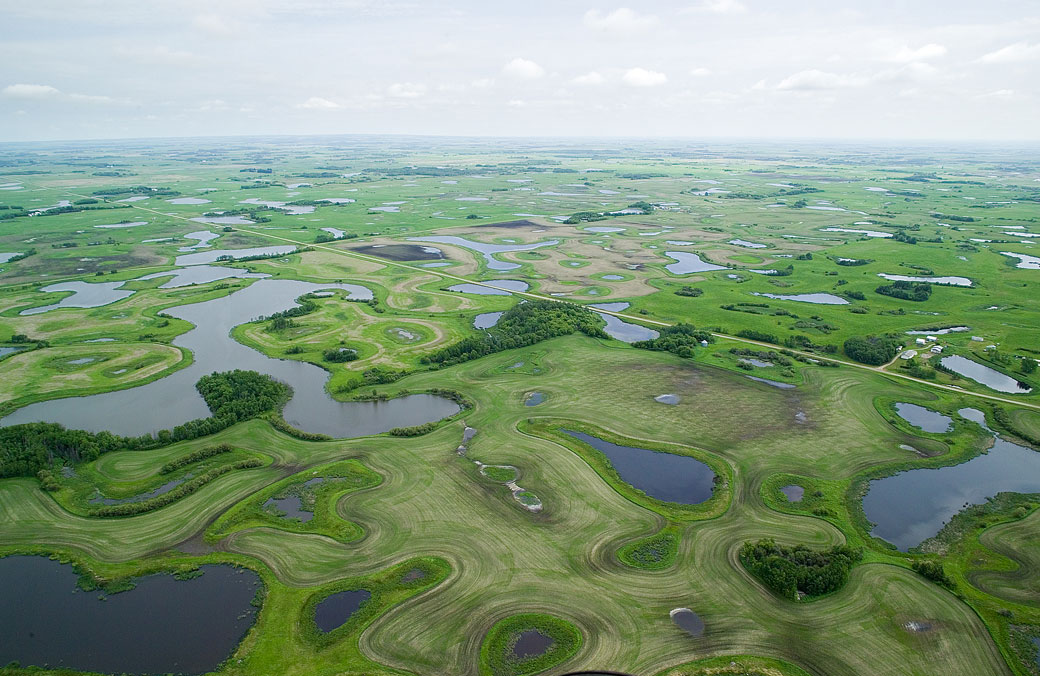As MLA hopefuls finish their final week on the campaign trail, a water ecology group wants them to get their feet wet on a wetlands drainage policy for the province.

The Saskatchewan Alliance for Water Sustainability (SAWS), a concerned citizens group focused on water quality, says the Saskatchewan Party and the NDP have barely dipped their toes into the issue.
There’s nothing in the incumbent Saskatchewan Party’s platform about a policy.
FULL COVERAGE: 2020 Saskatchewan Election
While the NDP does have a platform line saying it will “support the protection of wetlands,” Regina Northeast incumbent Yens Pedersen, the former environment critic, wouldn’t commit his party to an enforceable policy that ranks and evaluates wetlands to approve or deny drainage.
“That level of detail isn’t something you get into in an election platform,” he said, contending more “consultations” are needed with landowners, cities and towns using downstream water.
A policy akin to Alberta’s or Manitoba’s (both of which rank wetlands and oppose their drainage, depending on rankings) isn’t what “we want to just come up with,” as an “off-the-hip kind of idea,” he said.
The Saskatchewan Party has the same approach.
Spokesman Matt Glover said the party wants to keep consulting with agricultural producers and landowners “to develop a made-in-Saskatchewan agricultural water management strategy.”
- B.C. officer alleged sexual assault, CSIS had her investigated
- Alberta to overhaul municipal rules to include sweeping new powers, municipal political parties
- Military judges don’t have divided loyalties, Canada’s top court rules
- Norad looking to NATO to help detect threats over the Arctic, chief says
Glover touted a 40-acre research site planned for the Langham area, announced in July, which will study for two years what draining a wetland for farming does to that area.
READ MORE: Saskatchewan election tracker 2020 — Here’s what the parties are promising
University of Regina (U of R) water scientist Peter Leavitt wonders what’s the hold-up.
There’s already enough data and “Saskatchewan is similar enough to other prairie regions east, west, and south there’s enough to at least move on a first-draft policy,” one that can be “quite explicit,” he said.
The planned Langham-area project is “peculiar,” because the federal government now runs the St. Denis National Wildlife Area (west of Saskatoon) to study wetlands, he said, noting there’s plenty of wetlands expertise at the U of R and the University of Saskatchewan.
SAWS, Leavitt and fellow U of R researcher Roger Petry all agree wetlands have good benefits: Flood control for farmers (especially those at lower elevations), stopping downstream runoff of phosphorus and nitrogen by keeping them in the soil, improving water quality in lakes and rivers, and creating biodiversity among plants and animals.
Petry thinks both parties are short-sighted in their platform pitches on wetlands and the environment in general.
“They should be thinking about what Saskatchewan will look like in 10, 20, 30 years from now,” instead of just in four-year election cycles, he said. Petry works on sustainable development and public policy at the U of R.

Whichever party forms government, he figures it ought to impose “an enforceable two-year moratorium” on wetlands drainage; it would force all producers to be innovative, together, to figure out how to use wetlands in their fields.
He says that would position Saskatchewan long-term as a leader in food production beyond the cereal grains and pulses it’s known for.
A good example would be growing fruits and vegetables with the help of greenhouses, he said.
“We’re not going to feed the world by getting rid of our potential for discovery of new types of agriculture,” he said. “We should be thinking about what are the new enterprises.”

Comments